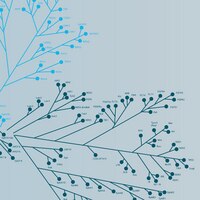Phosphatidylinositol 3-kinase mutations identified in human cancer are oncogenic.
Kang, Sohye, et al.
Proc. Natl. Acad. Sci. U.S.A., 102: 802-7 (2005)
2005
显示摘要
Mutations in genes that encode components of the phosphatidyl-inositol 3-kinase (PI3-kinase) signaling pathway are common in human cancer. The recent discovery of nonrandom somatic mutations in the PIK3CA gene of many human tumors suggests an oncogenic role for the mutated enzyme. We have determined the growth-regulatory and signaling properties of the three most frequently observed PI3-kinase mutations: E542K, E545K, and H1047R. Expressed in chicken embryo fibroblasts, all three mutants induce oncogenic transformation with high efficiency. This transforming ability is correlated with elevated catalytic activity in in vitro kinase assays. The mutant-transformed cells show constitutive phosphorylation of Akt, of p70 S6 kinase, and of the 4E-binding protein 1. Phosphorylation of S6 kinase and of 4E-binding protein 1 is regulated by the target of rapamycin (TOR) kinase and affects rates of protein synthesis. The inhibitor of TOR, rapamycin, strongly interferes with cellular transformation induced by the PI3-kinase mutants, suggesting that the TOR and its downstream targets are essential components of the transformation process. The oncogenic transforming activity makes the mutated PI3-kinase proteins promising targets for small molecule inhibitors that could be developed into effective and highly specific anticancer drugs. | | 15647370
 |
The oncogenic properties of mutant p110alpha and p110beta phosphatidylinositol 3-kinases in human mammary epithelial cells.
Zhao, Jean J, et al.
Proc. Natl. Acad. Sci. U.S.A., 102: 18443-8 (2005)
2005
显示摘要
The PIK3CA gene encoding the p110alpha subunit of Class IA phosphatidylinositol 3-kinases (PI3Ks) is frequently mutated in human tumors. Mutations in the PIK3CB gene encoding p110beta, the only other widely expressed Class IA PI3K, have not been reported. We compared the biochemical activity and transforming potential of mutant forms of p110alpha and p110beta in a human mammary epithelial cell system. The two most common tumor-derived alleles of p110alpha, H1047R and E545K, potently activated PI3K signaling. Human mammary epithelial cells expressing these alleles grew efficiently in soft agar and as orthotopic tumors in nude mice. We also examined a third class of mutations in p110alpha, those in the p85-binding domain. A representative tumor-derived p85-binding-domain mutant R38H showed modestly reduced p85 binding and weakly activated PI3K/Akt signaling. In contrast, a deletion mutant lacking the entire p85-binding domain efficiently activated PI3K signaling. When we constructed in p110beta a mutation homologous to the E545K allele of p110alpha, the resulting p110beta mutant was only weakly activated and allowed minimal soft-agar growth. However, a gene fusion of p110beta with the membrane anchor from c-Src was highly active and transforming in both soft-agar and orthotopic nude mouse assays. Thus, although introduction of activating mutations from p110alpha at the corresponding sites in p110beta failed to render the enzyme oncogenic in human cells, the possibility remains that other mutations might activate the beta isoform. | | 16339315
 |











